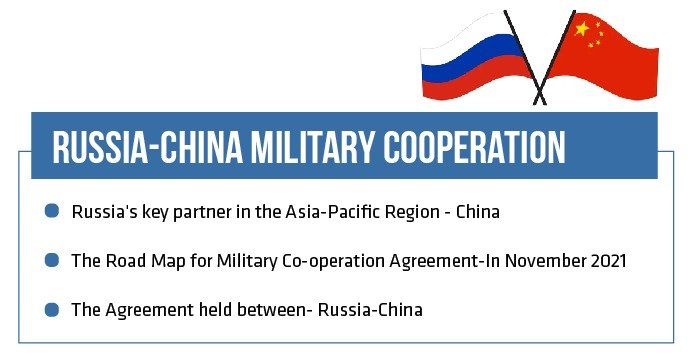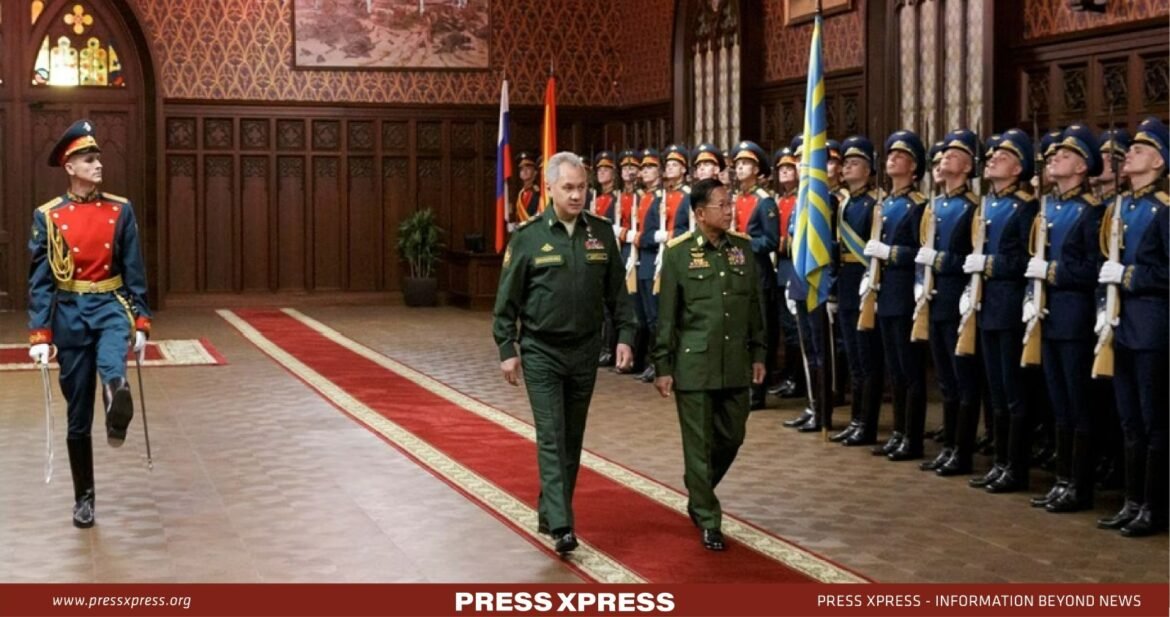Russia’s military cooperation ties in the Asia-Pacific region play a vital role in its broader strategy of expanding its global influence and maintaining a presence in this economically and strategically important part of the world
Russia is committed to maintaining military and military-technical partnerships in the Asia-Pacific region, which involve supplying equipment, conducting joint exercises, and other related activities, as stated by Russian Defense Minister Sergey Shoigu during the 10th Xiangshan Security Forum. Shoigu emphasized that these collaborations are in line with national and international laws and are not aimed at harming other nations. He also highlighted Russia’s efforts to enhance cooperation with Southeast Asian states, most of which have not imposed anti-Russian sanctions despite pressure from the United States and its allies.
Russia’s Military Cooperation Ties in the Asia-Pacific Region
Russia has been actively expanding its military cooperation ties in the Asia-Pacific region in recent years, as it seeks to strengthen its influence and presence in this strategically important area. The Asia-Pacific region is home to some of the world’s largest and most powerful nations, including China, India, Japan, and South Korea, making it a focal point for geopolitical competition.
Russia-China Military Cooperation
One of Russia’s key partners in the region is China. The two countries have deepened their military cooperation through joint military exercises, arms sales, and technology transfer. The Russia-China strategic partnership has allowed them to counterbalance the influence of the United States in the region and pursue common interests. In November 2021, they entered into an agreement known as the Road Map for Military Co-operation for 2021-2025, which outlines their joint efforts in this domain. Additionally, both the PRC and Russia are among the founding members of the Shanghai Cooperation Organization (SCO), which primarily concentrates on security matters and is based in Eurasia.

Russia-India Military Cooperation
India is another important player in the Asia-Pacific region, and Russia has maintained a long-standing defense relationship with India. Russia has been a major supplier of military equipment to India, including fighter jets, tanks, and submarines. The two nations have also engaged in joint military exercises and technology sharing, cementing their military ties.

Bilateral projects currently in progress include licensed production of T-90 tanks, Su-30-MKI aircraft, MiG-29-K aircraft, Kamov-31 helicopters, and upgrades to MiG-29 aircraft. The collaboration has evolved from a buyer-seller relationship to joint research, design, development, and production of advanced military platforms, as exemplified by the joint venture Indo-Russia Rifles Private Limited (IRRPL) for the production of AK-203 rifles in India under the “Make in India” initiative.
Joint military exercises are conducted under the “INDRA” series, with the Indra Tri-Service exercise scheduled for 2023. India also participated in international military games and exercises held in Russia in 2022, and Avia Indra is planned for 2023. The partnership between India and Russia in defense matters continues to strengthen and diversify.
Bangladesh- Russia Military Cooperation
Bangladesh and Russia have been strengthening their military cooperation in recent years through various agreements and exchanges. This collaboration includes the procurement of Russian military hardware, such as helicopters and armored vehicles, as well as joint military exercises and training programs. Both nations aim to enhance their strategic partnership in defense and security matters, promoting regional stability and counterterrorism efforts. This cooperation reflects Bangladesh’s diversification of its defense sources and Russia’s desire to expand its influence in South Asia, furthering its diplomatic and security ties.
During the 2023 ARMY International Military-Technical Forum, Deputy Minister of Defence of Russia, Colonel General Aleksandr Fomin, had a productive meeting with Major General (retired) Tarique Ahmed Siddique, the National Security Adviser to the Prime Minister of Bangladesh. Both sides expressed satisfaction with the ongoing progress in their mutually beneficial military relations and expressed their commitment to further enhance military cooperation.
Russia-Southeast Asia Military Cooperation
Asia Russia has also sought to strengthen its military cooperation with countries in Southeast Asia. Vietnam, in particular, has been a significant partner for Russia in the region. The two nations have conducted joint naval drills and increased arms sales, particularly in the maritime domain, to enhance Vietnam’s maritime capabilities. As part of President Vladimir Putin’s “turn to the east” policy, Russia has been expanding its defense diplomacy efforts in Southeast Asia since 2010. However, the majority of Russia’s military engagement with the region revolves around arms sales. Furthermore, Russia stands as the primary arms supplier to Southeast Asia.

In fact, the Stockholm Peace Research Institute observed that Russia accounted for approximately 30% of all weapons acquired by Southeast Asian countries between 2010 and 2019, often utilizing flexible financing methods, such as barter. According to The Economist, in the two decades preceding the conflict in Ukraine, Russia remained the predominant arms provider to Southeast Asia, with sales reaching a total of $11 billion. Countries like Indonesia, Laos, Myanmar, and others in the region still heavily depend on Russian weaponry for many of their military platforms.
In addition to these key partnerships, Russia has engaged in military dialogues and exercises with other countries in the Asia-Pacific region, including Japan and South Korea. These activities contribute to building trust and fostering cooperation in a region marked by competing interests and potential flashpoints.
Overall, Russia’s military cooperation ties in the Asia-Pacific region play a vital role in its broader strategy of expanding its global influence and maintaining a presence in this economically and strategically important part of the world. These partnerships enable Russia to promote regional stability, protect its interests, and engage in diplomatic and geopolitical maneuvering in a dynamic and complex region.


